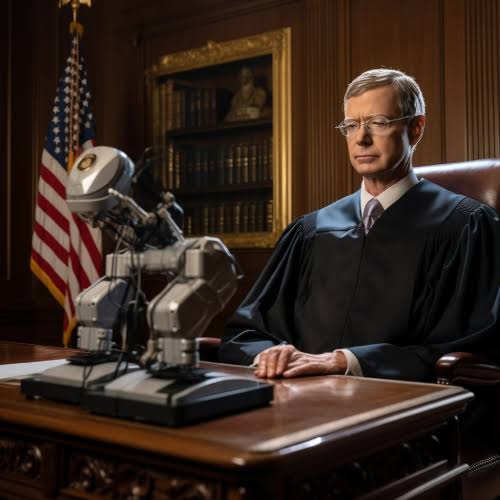Artificial intelligence (AI) will “significantly” impact legal practice, according to Chief Justice John Roberts of the United States Supreme Court, who made this prediction in the court’s end-of-year report on December 31.Roberts made artificial intelligence a central theme in his annual wrap-up, predicting that judges will “be around for a while.” However,“… with equal confidence, I predict that judicial work—particularly at the trial level—will be significantly affected by AI.”
According to what he wrote, judges’ perceptions of AI’s involvement in the cases they hear would likewise shift as a result of AI.Roberts emphasized that courts will have to “consider its proper uses” in litigation as technology advances.Roberts claims that AI can “indisputably assist” the current legal system in advancing the objectives of Federal Rule of Civil Procedures No. 1 implementation, which aims to achieve the “just, speedy, and inexpensive” resolution of cases.
He said, “But any application of AI needs humility and caution.”He brought out in particular the issue of “hallucinations” caused by artificial intelligence, when responses generated by the technology present inaccurate or misleading data as fact.Michael Cohen, a former attorney for businessman and US President Donald Trump, accused artificial intelligence on December 31 of creating phony citations in court records.Roberts added, stating emphatically that “key actors in court cannot be fully replaced by machines,” and that judges could gauge a defendant’s “sincerity of allocution” while determining sentence.
“Nuance matters,” he said. “Much can turn on a shaking hand, a quivering voice, a change of inflection, a bead of sweat, a moment’s hesitation, a fleeting break in eye contact.”
“And most people still trust humans more than machines to perceive and draw the right inferences from these clues.”
Less than a month has passed since a group of top British judges released AI guidelines for the judiciary in England and Wales, which includes this statement from the Chief Justice of the United States Supreme Court.The UK guideline warned judges about the possible risks associated with using AI during trials while also providing guidance on how to utilize it.Check also our roundup of “2024 AI legal challenges” forecasts for a more in-depth look at what’s to come with AI use in the legal field.

